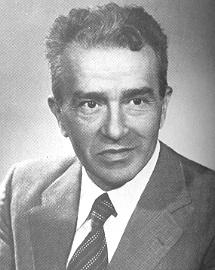Pietro Ingrao
| Pietro Ingrao | |
|---|---|
 |
|
| President of the Chamber of Deputies | |
|
In office June 5, 1976 – July 19, 1979 |
|
| Preceded by | Sandro Pertini |
| Succeeded by | Nilde Iotti |
| Personal details | |
| Born |
30 March 1915 Lenola, Italy |
| Died |
27 September 2015 (aged 100) Rome, Italy |
| Nationality | Italian |
| Political party | Italian Communist Party |
| Profession | Politician |
Pietro Ingrao (30 March 1915 – 27 September 2015) was an Italian politician, journalist and former partisan. For many years he was a senior figure in the Italian Communist Party (PCI).
Ingrao was born at Lenola, in the province of Latina.
As a student he was a member of GUF (Gruppo Universitario Fascista) and won a "Littoriale" of culture and art.
Ingrao joined the PCI in 1942 and took part in the anti-fascist resistance during World War II. After the war, he led the Marxist-Leninist tendency in the party, representing its left wing. This led him to frequent political differences with Giorgio Amendola, leader of the social democratic tendency.
Ingrao was a Member of Parliament continuously from 1950 to 1992. In 1947-1957, he was editor-in-chief of the party newspaper, L'Unità. He was the first Communist to become President of the Italian Chamber of Deputies, a position he held from 1976 to 1979.
After PCI's then-secretary Achille Occhetto, in what was called the Svolta della Bolognina, decided to change the party's name, Ingrao become his main internal opponent. In the PCI's 20th Congress of 1991, he joined the reformist majority in its successor, the Democratic Party of the Left (PDS), but soon left the group. After the European elections of 2004, he abandoned PDS and adhered (as an independent) to the more hardline successor to the old PCI, the Communist Refoundation Party.
He has written a number of poems and political essays. His most important work is Appuntamenti di fine secolo ("Rendez-vous at the end of the century"), published in 1995 in collaboration with Rossana Rossanda.
...
Wikipedia
